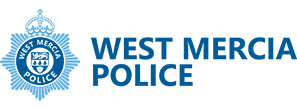|
||||
|
||||
|
|
||||
|
CHARITY FRAUD
Christmas time is a time for giving, and many people will also be thinking of giving to charities to help the needy and less fortunate in society. At the same time, Fraudsters rely on the public’s generosity in giving to charities and good causes, and may claim to be fund raising by impersonating as a genuine charity, or have set up a fake charity. These may also be tied in to topical events in the world, such as natural disasters, or the many human problems around the world caused by war and conflict. Criminals may use various methods including emails online, door to door collections or street collections for cash, as well as getting people to sign up to Direct Debit payments for a Charity. Whilst many may be genuine, the public are advised to always be wary, and ensure you are not giving money to fraudsters.
Simple checks you can do include: 1. Check the Charity name and Registration Number at https://gov.uk/checkcharity
Street and door to door collections: 1. Collectors should always wear a visible and authentic ID badge
Online Charity Appeals 1. Never click on links in emails and attachments, but visit the Charity’s website yourself and check the Charity registration number.
Please feel free to share these messages with any vulnerable friends, relatives or neighbours
Scam Text messages can be forwarded to 7726 to help phone providers take early action and block numbers that generate spam on their networks. You can also report Scam mobile calls by texting 7726 with the word “Call” followed by the scam caller’s phone number. Forward Fake Emails received to report@phishing.gov.uk If you think your bank account or personal banking details have been used fraudulently, then use the short phone number - 159 - to contact the Fraud Prevention Department of most major UK banks
| ||||
Reply to this message | ||||
|
||||
|
|
||||

|
|








